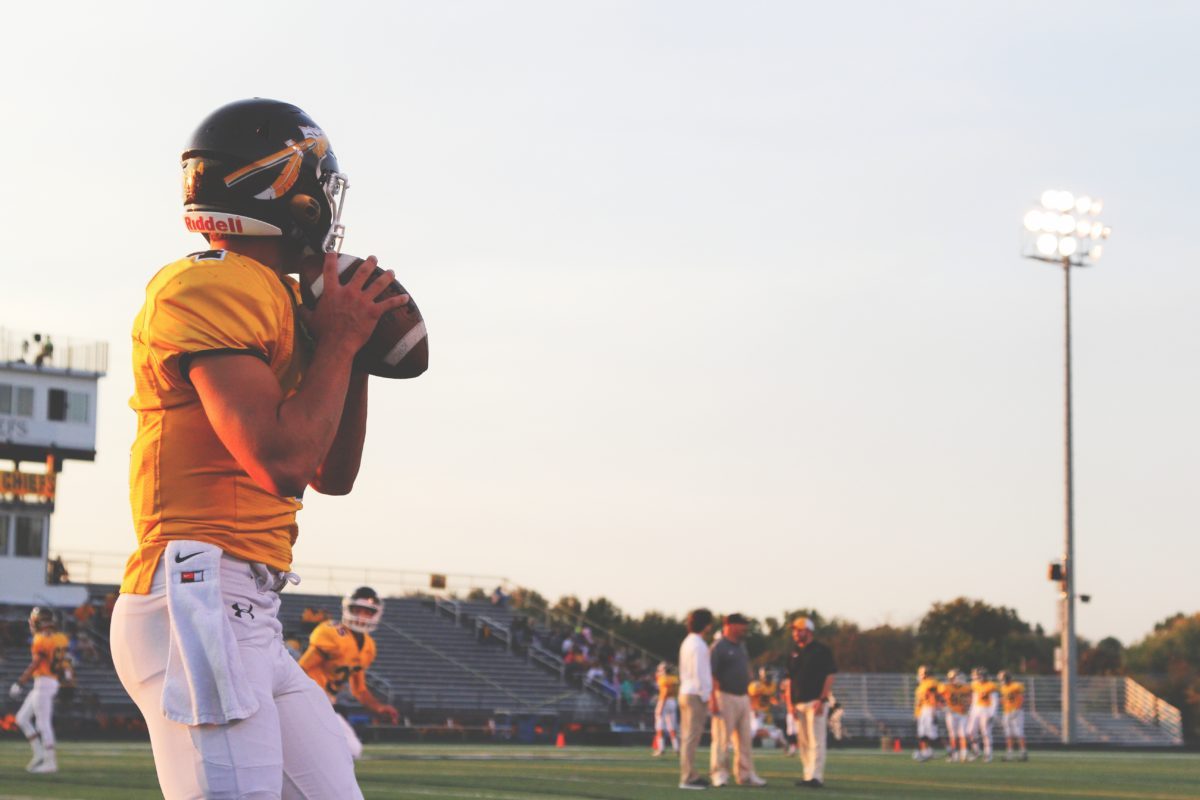The Connection Between Head Trauma & Mental Health in Athletes

Photo by Riley McCullough on Unsplash
Head injuries in sports have been linked to mental health issues, particularly depression, suicide and sometimes even death. According to studies, those who endure serious head injuries face a suicide risk three times higher than their peers.
Over this Thanksgiving weekend, a 22-year-old Ohio State football player and wrestler was found dead from a self-inflicted gunshot wound. He had suffered many concussions, once again pointing to the fact that head trauma is directly linked to a condition known as chronic traumatic encephalopathy, or CTE. CTE is a neurodegenerative disease seen in those with traumatic brain injuries. There is no known cure for the condition. It has been linked to memory loss, impaired judgment, depression, aggressive behavior and dementia. There have been a rising number of athletes who suffered similar mental health related consequences due to head injuries lately in the US.
The most widely known sports related head injury is a concussion, or a traumatic injury to the brain that changes the way it functions, either temporarily or long-term. Concussions are usually caused by a direct blow to the head, but can also occur when the head or upper body are violently shaken. Loss of consciousness often occurs, but not always – so sometimes a person does not know that they have a concussion. Symptoms vary widely, but usually include the following: headaches, dizziness, blurred vision, coma, seizures, memory problems, lack of inhibition, lack of concentration, intense anger, aggression, change in personality and language impairment. Having the correct concussion treatment and recovery program, therefore, is vital to athletes who want to get back to their sports as quickly and safely as possible.
Some facts about concussions
- Each year, there are about 1.6 to 3.8 million sports and recreation related concussions in the United States.
- Football is the most common sport with concussion risk for males at 75 percent.
- Football players have about 900-1500 blows to the head during a season.
- Soccer is the most common sport with concussion risk for females at 50 percent
- Headaches and dizziness are the most commonly reported symptoms immediately following concussions for injured athletes.
- Fewer than 10 percent of sports-related concussions involve a loss of consciousness.
ALCAR with ALA for Brain Health
According to Jerry Hickey, R. Ph, “A study done by the University of California, Itvine School of Medicine focused on 30 former NFL football players. They had problems, they had concussions and they had brain injuries. So they were acting out, they were becoming aggressive, they were becoming emotional, they were becoming depressed, their memory suffered and they just weren’t functioning well. So 30 former retired NFL players who had a series of concussions were put on a cocktail of nutrients like fish oils and a multivitamin and the ALCAR with ALA. Over the course of the study ALCAR with ALA provided a statistically significant, real-world improvement in their scores for attention, memory, reasoning, information processing speed as well as accuracy in a battery of tests for mental, brain and executive functions. The MRI brain scans showed improved circulation and health of the brain; the nutrients improved their cognitive skills for patients with traumatic injuries. Now, this has implications also for soldiers who were hurt. Anybody who has had a concussion, anybody who has had the brain injury, there is room for improvement there.”
Read more – Electrolytes for Muscle Recovery, by Dr. Millie Lytle, ND, MPH, CNS
Concussions and Brain Chemistry
The reason that concussions seem to have a direct link to higher suicide risk is because this type of injury directly changes the brain’s chemistry. A concussion happens when the brain is physically shaken and shifted inside the skull. The brain hits the inside of the skull, which causes the brain itself to swell, bruise and bleed. The fragile neural cells in the brain can become damaged, and over time the neural cells become degenerative. The impact of a concussion on these brain cells causes severe issues to mental health.
Athletes in sports like football are especially prone to concussions. For athletes, minimizing the risk of head trauma is essential. Here are some tips to help protect yourself from concussions:
- Parents and coaches should pay close attention to kids who experience one or multiple concussions.
- Players must use the proper protective gear for that particular sport. Make sure it fits and is being worn correctly at all times.
- With minor or major head injury occurs, players should remain out of the game until evaluated by a physician.
- If a major head injury occurs, seek medical attention immediately.
- Do not return to play with a suspected concussion until given permission by a physician.
Source: http://www.foxnews.com/health/2014/12/10/exploring-link-between-head-injuries-and-suicide-in-athletes/